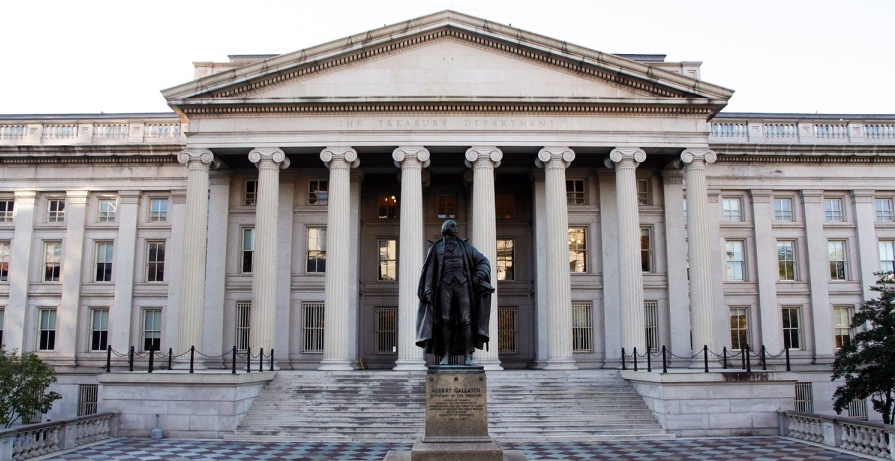Editor’s note: CPA supported the bill to strengthen controls on incoming foreign investment. The rules are now being written for implementation.
The Treasury-led interagency committee will now require foreign investors to alert it to all deals giving them access to critical technology across 27 industries—including semiconductors, telecommunications and defense—that the committee believes could threaten U.S. national security and technological superiority, according to Cfius officials.
[ Kate O’Keeffe | Oct. 10, 2018 | WSJ ]
Previously, Cfius focused more narrowly on deals where foreigners took controlling stakes in U.S. businesses, and filing for reviews was optional. Investors were historically incentivized to file and seek Cfius approval because, if they didn’t, the committee might choose to review their deal anyway and recommend the president block or unwind it, creating substantial risk.
In recent years, however, lawmakers and officials came to believe that many deals involving important U.S. technology were flying under the committee’s radar, creating national-security risks. They have been particularly concerned about a spate of Chinese technology deals in Silicon Valley.
A February 2017 report by the Defense Department’s Defense Innovation Unit, which was influential in the crafting of the Cfius measure, mapped out various ways Chinese investors participate in U.S. technology deals in the valley, including through investments made by Chinese venture-capital and private-equity firms and by Chinese tech giants Baidu Inc., Tencent HoldingsLtd. , Alibaba Group Holding Ltd. and JD.com Inc.
The new rules expand Cfius’s mandate to noncontrolling U.S. business investments giving foreigners access to material nonpublic technical information, membership or observer rights on the company’s board of directors, or any involvement—-other than through the voting of shares—in making major decisions for that business regarding critical technology, Treasury officials said. “Critical technology” refers to items on U.S. export controls lists, which are also being updated.
“This significantly changes the importance of Cfius for foreign investors because it is now a mandatory process for a broad swath of technological acquisitions,” said Nova Daly, an adviser at law firm Wiley Rein LLP and a former Treasury official who once ran the Cfius process.
The new rules mean that a range of foreign investors who made early-stage investments in areas such as artificial intelligence and autonomous driving in Silicon Valley without having to file for Cfius reviews could be required to do so for such deals in the future, said Ivan Schlager, who runs the national-security practice at law firm Skadden, Arps, Slate, Meagher & Flom LLP.
In August, President Trump signed the Cfius measure into law as part of a broader annual defense-authorization bill. Led by Sen. John Cornyn (R., Texas) and Rep. Robert Pittenger (R., N.C.), the Cfius initiative received broad, bipartisan support, but some businesses and free marketeers in Congress worked to keep the measure’s scope as narrow as possible because they worried it could unnecessarily stifle foreign investment, which the U.S. has long welcomed as a source of economic growth and jobs.
Lawyers representing deal makers before Cfius have said that, while the measure’s passage represented a sharply different approach to foreign investment, the true scope of the new rules and how they would practically affect businesses would be revealed only in the lengthy regulation-writing process left to the executive branch.
For example, the legislation specified that investors would now also be required to file abbreviated notices for reviews of noncontrolling investments if the deals were backed by foreign governments and involved critical technology, but it left the committee discretion to determine what other types of transactions deal makers would have to submit for Cfius review, according to an initial assessment of the measure by law firm Covington & Burling LLP.
The new, temporary regulations take effect in a month and will be superseded by permanent regulations some 15 months later. Under the new regime, even nongovernment-backed foreign investors involved in such technology deals would have to file.
And the pilot regulations don’t specify Chinese and Russian investors as priorities for review, as House Financial Services Chairman Jeb Hensarling (R., Texas) and ranking member Maxine Waters (D., Calif.,), whose committee has jurisdiction over Cfius, had asked in a September letter to the Treasury that sought favorable treatment for allies.
Typical venture-capital and private-equity funds led by U.S. general partners will be exempt from filing for Cfius reviews as long as any foreign limited partners don’t gain access to material nonpublic technical information or the powers enumerated under the pilot program, the new regulations indicate.













